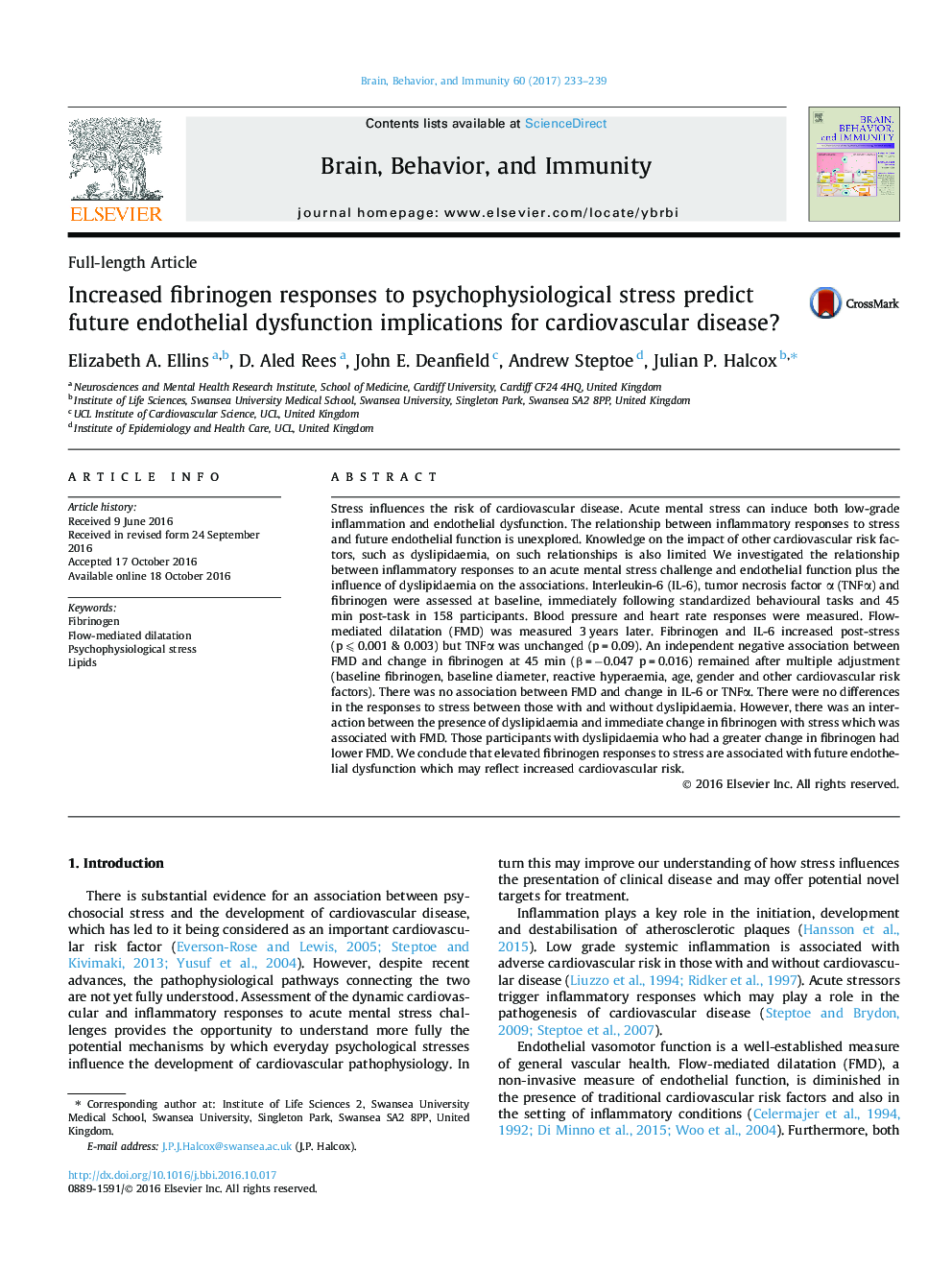| کد مقاله | کد نشریه | سال انتشار | مقاله انگلیسی | نسخه تمام متن |
|---|---|---|---|---|
| 5040752 | 1473907 | 2017 | 7 صفحه PDF | دانلود رایگان |
- Elevated fibrinogen response to stress was associated with endothelial dysfunction.
- The relationship remained after adjustment for cardiovascular risk factors.
- Immediate fibrinogen response predicted endothelial dysfunction in mild dyslipidaemia.
Stress influences the risk of cardiovascular disease. Acute mental stress can induce both low-grade inflammation and endothelial dysfunction. The relationship between inflammatory responses to stress and future endothelial function is unexplored. Knowledge on the impact of other cardiovascular risk factors, such as dyslipidaemia, on such relationships is also limited We investigated the relationship between inflammatory responses to an acute mental stress challenge and endothelial function plus the influence of dyslipidaemia on the associations. Interleukin-6 (IL-6), tumor necrosis factor α (TNFα) and fibrinogen were assessed at baseline, immediately following standardized behavioural tasks and 45 min post-task in 158 participants. Blood pressure and heart rate responses were measured. Flow-mediated dilatation (FMD) was measured 3 years later. Fibrinogen and IL-6 increased post-stress (p ⩽ 0.001 & 0.003) but TNFα was unchanged (p = 0.09). An independent negative association between FMD and change in fibrinogen at 45 min (β = â0.047 p = 0.016) remained after multiple adjustment (baseline fibrinogen, baseline diameter, reactive hyperaemia, age, gender and other cardiovascular risk factors). There was no association between FMD and change in IL-6 or TNFα. There were no differences in the responses to stress between those with and without dyslipidaemia. However, there was an interaction between the presence of dyslipidaemia and immediate change in fibrinogen with stress which was associated with FMD. Those participants with dyslipidaemia who had a greater change in fibrinogen had lower FMD. We conclude that elevated fibrinogen responses to stress are associated with future endothelial dysfunction which may reflect increased cardiovascular risk.
Journal: Brain, Behavior, and Immunity - Volume 60, February 2017, Pages 233-239
